Contents [hide]

Deity Shiva
In the previous article on ‘Forms of Shiva’ (Forms of Shiva (Part 1)), we familiarised ourselves with a few forms of Shiva – Rudra, Kalabhairav, Veerabhadra, Bhairavanatha etc. In this article, we will learn about Vetal, Bhutanatha and Nataraj.
6. Vetal
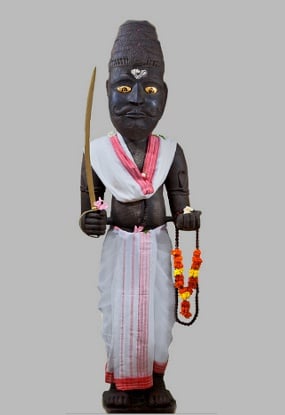
Vetal
A. Origin and meaning
The word Vetal has been generated from the word vaital (वैताल), meaning, one who makes even a severe abnormality dance to His tune. When ahat (Physical) and anahat (Subtle) sounds unite, vai (वै) waves are generated. They correct the abnormalities.
B. Other names
Vetal is also known by other names – Agyavetal, Jwalavetal or Pralayavetal.
C. Unique attributes
Skanda soldiers such as Vetal are included in the bhutaganas (Spirit attendants). The Matsyapuran describes Vetal as one who feeds on flesh and blood. Shiva has made Vetal the presiding Deity of spirits. The sorcerers call Vetal, veer (Brave). Vaitali, the mother of Vetal, has gained importance as Matruka Devi.
D. Idols
Idols of Vetal are made of wood or stone. Vetal as the village Deity is in the form of a round stone. In Goa, its idols are made of wood or stone and at times are nude. The Idols sport a trident or a staff.
E. Worship
Vetal is the village Deity in many villages of Goa and those in the vicinity of Pune in Maharashtra. In western Maharashtra, the Idol exists on the border of the village in the form of a round stone smeared with kumkum. More round stones smeared with kumkum surround it. They are referred to as the soldiers of Vetal. Often temples of the nine planets (also known as Navagrahas) are adjacent to the temple of Vetal. The community of the Mahars in Maharashtra worships it in the nude form. To please Him, sacrifices of roosters and goats are made. In some places, sweet delicacies too are offered. During a religious festival, He is taken out in a procession seated in a palanquin decorated with flowers.
E1. Objective of making a sacrifice to inferior Deities
Animals are sacrificed to please inferior Deities. Inferior Deities are associated with the Pruthvitattva (Absolute Earth Principle) and Apatattva (Absolute Water Principle), while superior Deities are associated with the Tejtattva (Absolute Fire Principle), Vayutattva (Absolute Air Principle) and Akashtattva (Absolute Ether Principle). It is because of the association with Pruthvitattva and Apatattva, that offering of a Tama-predominant animal (made up of Pruthvitattva) pleases inferior Deities. As against this, superior Deities are pleased with offerings of gandha (Sandalwood paste), akshata (Unbroken rice grains, usually smeared with kumkum and used in ritualistic worship) , flowers and other sattvik substances. That is why, superior Deities are not offered animals in sacrifice.
E2. Perspective in offering animals in sacrifice to inferior Deities
A sacrifice amidst chanting of mantras liberates the animal and resolves the problem of the individual offering the sacrifice, because of the grace of the Deity. However, to obtain these benefits, the animal should be willing to sacrifice itself of its own accord. The behaviour of the mute animal can reveal if it is ready to be sacrificed or not. If it walks gracefully to the balivedi (Altar for sacrifice of animals) with its head high, does not tug at the rope with which it is tied, does not cry and patiently awaits the strike of the sword, then this type of sacrifice is beneficial to both. However, if the animal is unwilling to be sacrificed, then the individual offering it may incur a demerit of killing the animal.
7. Bhutanatha
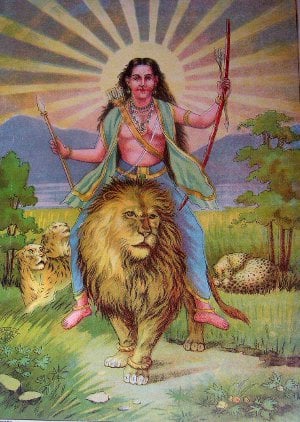
Bhutanatha
Note : There are many forms of Shiva having different missions on different occasions. According to the mission, its appearance, clothes and weapons are distinct. Therefore, in different regions it is worshiped according to the distinctive traits.
He is one of the inferior Deities from a category similar to that of Vetal. Goa has temples of this Deity. At midnight, He commences patrolling with His soldiers. It is said that at that time, He has a staff in His hand and has a blanket on His shoulder. Believing that His slippers wear out with His patrolling on foot, people in the vicinity of Sawantwadi in Maharashtra offer Him a pair of new slippers every month. If one is possessed by a spirit, then it goes away by summoning Bhutanatha.
8. Nataraj
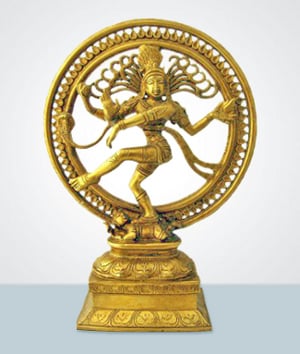
Nataraj
Body movements performed to depict a particular event or issue is known as natan or natya. The one who performs this natan is a nat (Actor). Traditionally, it is believed that Nataraj is the promoter of dance. Since Shiva is the pioneer amongst actors, the title of Nataraj is accorded to Him.

 Unique Spiritual experiences of Miss Smital Bhujle after chanting Om Namah Shivay
Unique Spiritual experiences of Miss Smital Bhujle after chanting Om Namah Shivay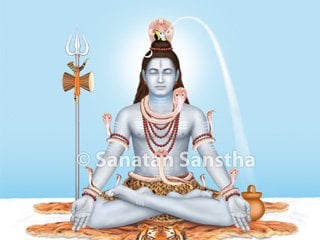 How to celebrate Mahashivaratri during adverse times?
How to celebrate Mahashivaratri during adverse times? Spiritual science underlying the ritual of offering a bel (aegle marmelos) leaf to Deity Shiva
Spiritual science underlying the ritual of offering a bel (aegle marmelos) leaf to Deity Shiva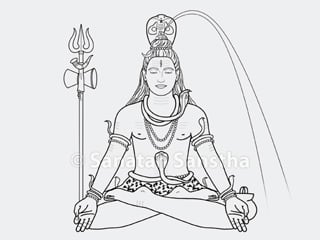 Spiritual characteristics of Deity Shiva
Spiritual characteristics of Deity Shiva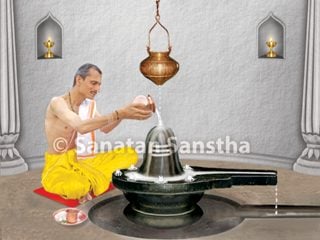 What is the significance of consecrating the Shivapindi with milk on Mahashivratri?
What is the significance of consecrating the Shivapindi with milk on Mahashivratri?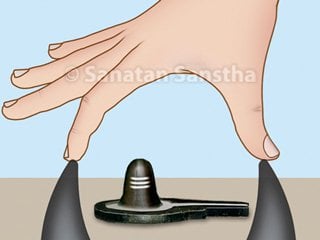 How to take darshan of Shiv pindi ?
How to take darshan of Shiv pindi ?